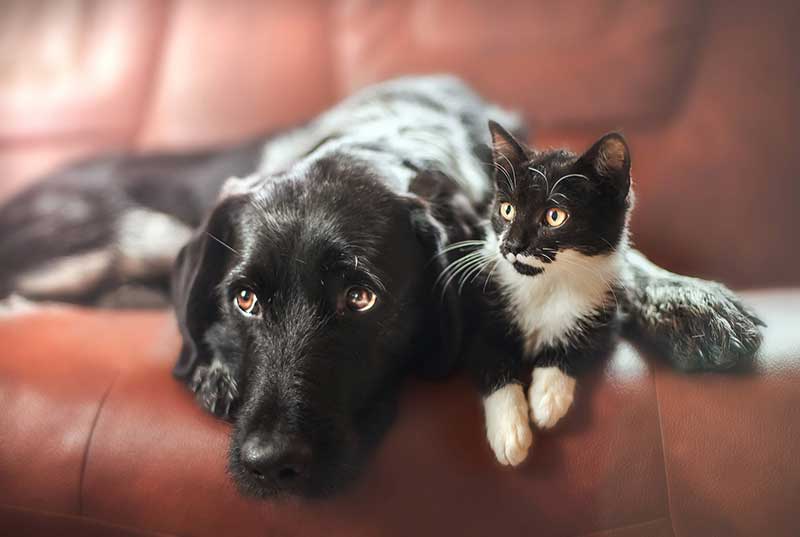
Vaccines
Wellness and preventative care are essential to your pet’s proper development and ongoing health. A primary part of preventive care for cats and dogs are vaccinations and vaccine boosters. Like humans, pets receive vaccinations to prevent them from contracting contagious diseases that could threaten their lives or significantly reduce quality of life.
What You Should Know About Vaccines for Dogs and Cats
How Do Vaccines Work?
Pet vaccines work the same way as vaccines developed for humans. A vaccine contains partial or inactive viruses called antigens. When introduced to a cat or a dog’s body, these antigens trigger an immune response. In a sense, vaccines train the immune system to effectively and efficiently combat pathogens, without actually making your pet sick or contagious.
The next time a cat or dog is exposed to a virus for which they have been vaccinated, their immune system will already have antibodies available to eliminate the virus.
Are Vaccines Safe for Pets?
Like most medical treatments, vaccinations aren’t entirely without risks. There is a small chance that a pet will experience an adverse reaction to a vaccination. The odds of serious vaccine complications, however, are infinitesimally small when compared to the odds of an unvaccinated pet contracting a highly contagious disease that could be life-threatening.
As long as pets are old enough and healthy, our veterinarians always recommend vaccination.
Which Vaccines Does My Pet Need?
While vaccinations are important for pets’ health, not every pet needs every vaccination. There are two different categories of vaccines, called core and non-core vaccines. Core vaccines are those which are either required by law or recommended for all pets. Non-core vaccines are those which are administered based on a pet’s environment, lifestyle, and potential risk of exposure to certain diseases.


Canine Core Vaccinations Guard Against:
- Parvovirus
- Distemper
- Hepatitis
- Rabies
Feline Core Vaccinations Guard Against:
- Distemper
- Calcivirus
- Rhinotracheitis
- Rabies

There are additional non-core vaccinations available for both dogs (such as Bordetella, borrelia, and leptospirosis) and cats (such as feline leukemia virus, feline immunodeficiency virus, and chlamydophila). These vaccines may be recommended or required if your pet is in social situations such as dog parks, boarding or daycare, and grooming facilities.

When Does My Pet Need to Be Vaccinated?
When puppies and kittens nurse, they receive antibodies in their mothers’ milk that protect them from disease. Once they stop nursing, they lose this protection and with young immune systems, they become highly susceptible to contagious disease. Most puppies and kittens should receive their first round of vaccinations at about six to eight weeks of age. Adult pets continue boosters throughout their lives.
Schedule a Preventative Care Appointment at Adobe Veterinary Center
We welcome you to schedule a preventative care appointments at Adobe Veterinary Center to discuss your pet’s vaccination schedule with one of our veterinarians. We can help you set your new puppy or kitten up for a healthy life with a regular schedule of vaccinations and boosters, or we can help you make sure your adult cat or dog has adequate protection from dangerous contagious diseases.
For more information about vaccinations or to schedule an appointment, please contact our office today.








